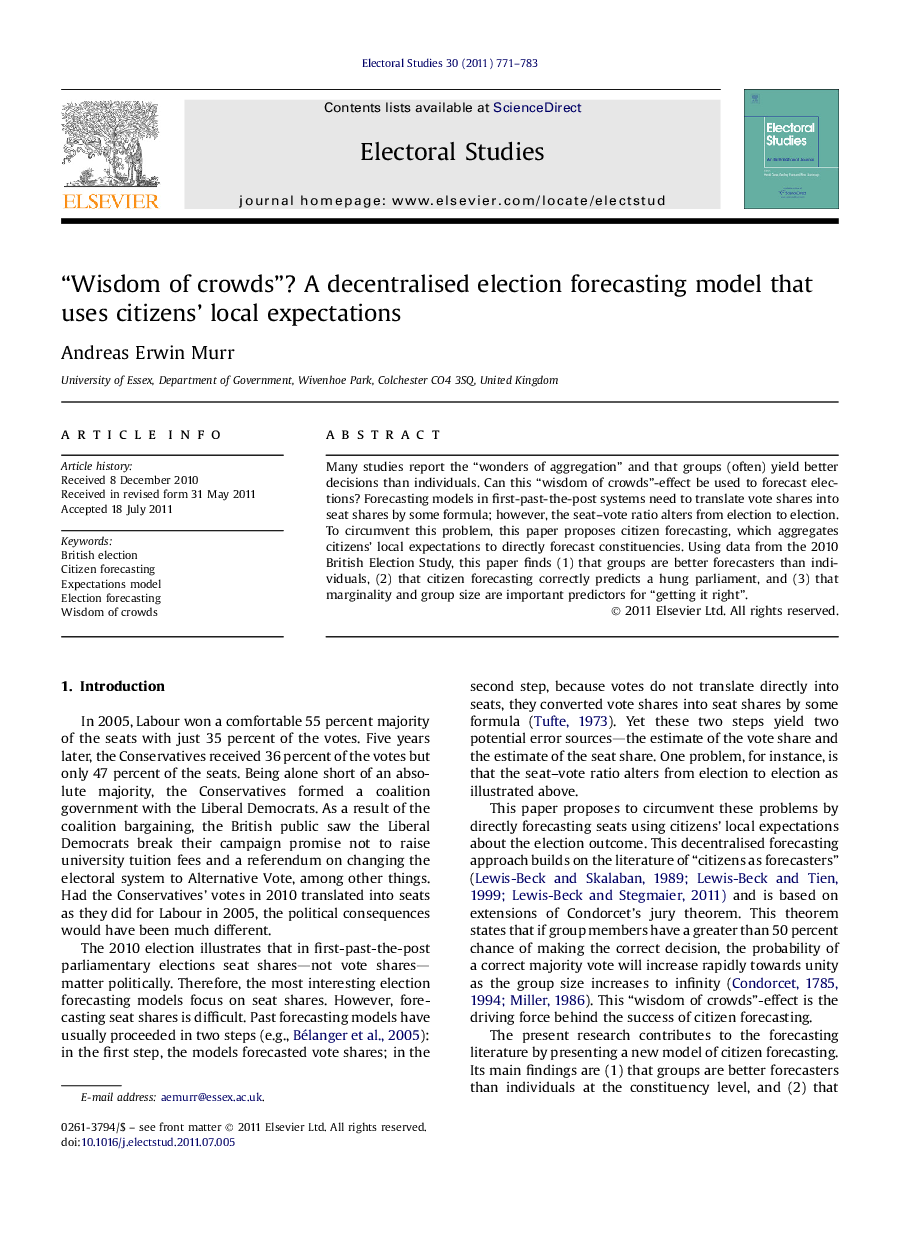| Article ID | Journal | Published Year | Pages | File Type |
|---|---|---|---|---|
| 1052271 | Electoral Studies | 2011 | 13 Pages |
Many studies report the “wonders of aggregation” and that groups (often) yield better decisions than individuals. Can this “wisdom of crowds”-effect be used to forecast elections? Forecasting models in first-past-the-post systems need to translate vote shares into seat shares by some formula; however, the seat–vote ratio alters from election to election. To circumvent this problem, this paper proposes citizen forecasting, which aggregates citizens’ local expectations to directly forecast constituencies. Using data from the 2010 British Election Study, this paper finds (1) that groups are better forecasters than individuals, (2) that citizen forecasting correctly predicts a hung parliament, and (3) that marginality and group size are important predictors for “getting it right”.
► We present a new forecasting model based on citizens' local expectations. ► We employ the model for the 2010 UK General Election. ► Citizen forecasting correctly predics a hung parliament. ► Citizen forecasting mirrors parties’ local vote share. ► Larger groups are more likely to be correct.
